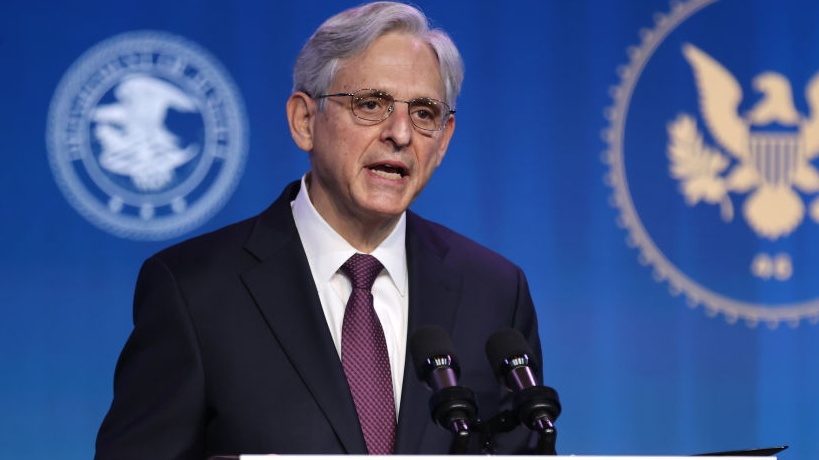A day after former officer Derek Chauvin was found guilty for the murder of George Floyd, the Justice Department announced its plan to launch a federal civil rights inquiry into Minneapolis police operations and its use of lethal force.
Making the announcement on Wednesday, Attorney General Merrick Garland said there will be a deeper investigation to examine officers' use of excessive force and discriminatory actions involving those with mental health problems, as well as department training policies and supervision.
"Yesterday's verdict does not address potentially systemic police issues in Minneapolis," Garland said, according to USA Today.
The civil rights inquiry is separate from the Justice Department's still pending criminal investigation into Floyd's death, NBC News reported.
"Broad participation in this investigation from the community and from law enforcement will be vital to its success. The Justice Department has already begun to reach out to community groups and members of the public to learn about their experiences with the MPD," Garland said about the investigation, which will also determine whether Minneapolis police used excessive force during protests or engaged in discriminatory conduct.
The attorney general is aiming to move forward with police reform efforts which were mostly blocked during Donald Trump's presidency. In a memo issued on Friday, Garland rescinded a previous directive given by former Attorney General Jeff Sessions. The Trump-era order had demanded Justice attorneys to limit the use of consent decrees, which are court-enforced agreements allowing federal judges to ensure promised reforms are underway.
"I strongly believe that good officers do not want to work in systems that allow bad practices," the attorney general said. "Good officers welcome accountability. Public safety requires public trust."
As Blavity previously reported, Vice President Kamala Harris urged the senate on Tuesday to pass the George Floyd Justice in Policing Act. The bill intends to set up a national registry of police misconduct, preventing officers from moving to another jurisdiction to avoid consequences for their actions. The legislation also aims to stop racial and religious profiling, as well as ban chokeholds and no-knock warrants.
In addition, the statute is focused on reexamining qualified immunity, which critics view as a harmful doctrine shielding law enforcement from accountability.
"Black Americans and Black men in particular have been treated throughout the course of our history as less than human," Harris said. "Black men are fathers, and brothers, and sons, and uncles, and grandfathers, and friends, and neighbors. Their lives must be valued."
President Joe Biden is also backing the bill, which cleared the House last month.
"We need Congress to act," Biden said. "George Floyd died almost a year ago. There's meaningful police reform legislation in his name."
In addition to investigating the Minneapolis Police Department, the Justice Department is examining three other law enforcement agencies.
"We recognize that our community is hurting, and hearts are heavy with many emotions," Minneapolis Police Chief Medaria Arradondo said. "However, I have hope the community that I was born and raised in and that we serve is resilient, and together we can find our moment to begin to heal."
